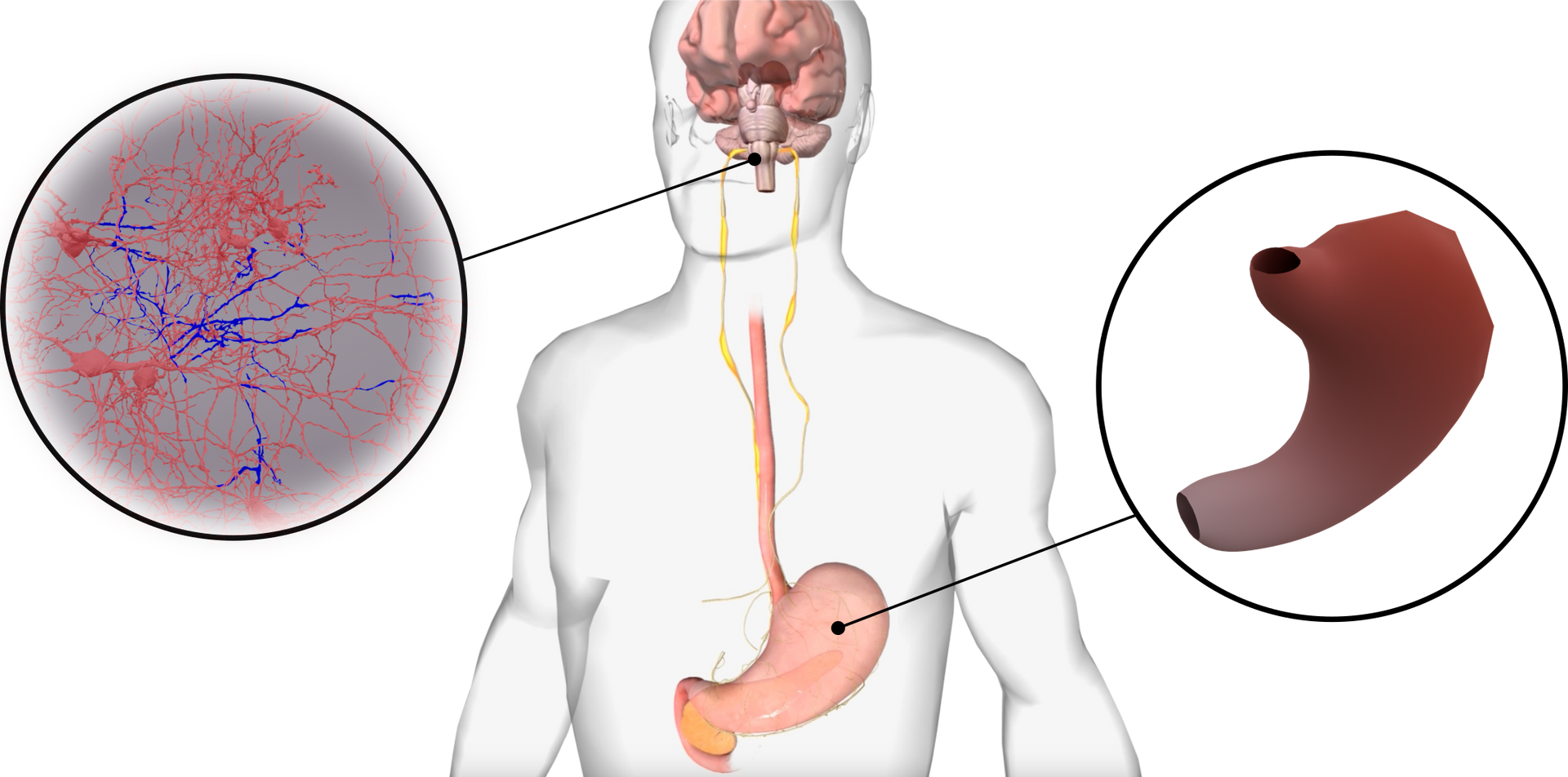How Does the Stomach Communicate with the Brain?
A Feature Published in Spektrum of TU Hamburg
For centuries, physicians have debated whether all illnesses truly begin in the stomach. Although modern medicine has disproved that single-cause notion, growing evidence shows the digestive system and the brain are deeply linked—often referred to as the “gut-brain axis” or “brain-stomach axis”. Environmental factors, along with the complex gut microbiota, highlight how disruptions in the stomach can influence our mental well-being, manifesting in psychosomatic disorders like irritable bowel syndrome.
At Advanced Biosimulation Technologies (ABS), we explore this profound interconnection through cutting-edge digital modeling. Dr. Roustem Miftahof, in collaboration with Dr. Alexander Hermann, has developed a unique approach that merges fundamental biomedical principles, artificial intelligence, and advanced computational methods. By mathematically replicating crucial elements of the human brain—specifically, the neuro-glial-vascular unit (NGVU)—their model captures the interactions among neurons, glial cells, and blood vessels. Coupled with a precise simulation of the stomach, this breakthrough allows for real-time investigation of how gut and brain functions influence each other via the vagus nerve.

“Understanding the gut-brain axis at a cellular and physiological level opens the door to new diagnostic methods, more effective therapies, and potentially transformative treatments,” says Dr. Miftahof. The system, designed to be cloud-based, may soon be tested in a pilot study with a major clinical partner to evaluate patients experiencing psychosomatic gastrointestinal disorders.
By harnessing digital twin technology, ABS aims to bring unprecedented clarity to one of the body’s most elusive connections. The findings of Dr. Miftahof and Dr. Hermann, recently featured in Spektrum of the TU Hamburg, signify a leap forward in tackling a wide range of conditions at the intersection of digestive health and mental well-being.
Go to the article: tuhh.de/spektrum/2410/#12

